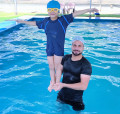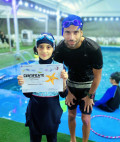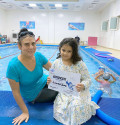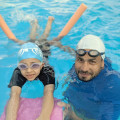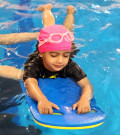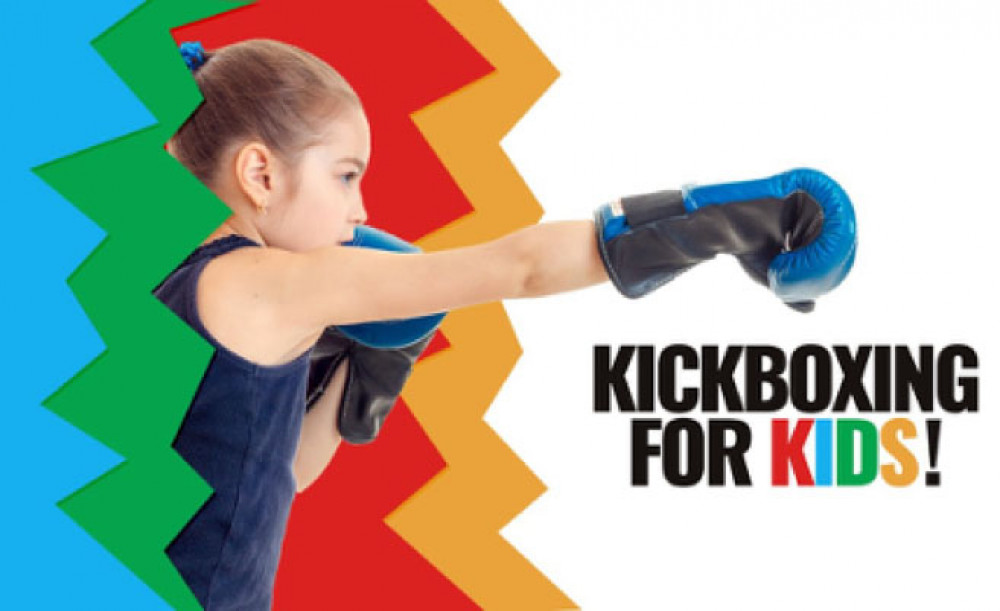
Kickboxing for Kids Learning Defense Steps
2023-12-25 - kick-boxingIntroduction to Kickboxing for Kids
In the dynamic world of martial arts, kickboxing stands out
as a powerful and engaging form of self-defense. When it comes to kids, the
benefits extend beyond physical fitness, incorporating discipline, focus, and
confidence. Let's explore the world of kickboxing for kids and understand how
it can be a transformative journey for young learners.
Benefits of Kickboxing for Kids
Kickboxing goes beyond just teaching kids how to throw
punches and kicks. It's a holistic approach to physical and mental well-being.
Children engaging in kickboxing experience improved fitness, enhanced
discipline, and a boost in self-confidence. These benefits contribute not only
to their martial arts skills but also to their overall development as
individuals.
Choosing the Right Kickboxing Program for Kids
Selecting the appropriate kickboxing program for your child
is crucial. Look for programs with qualified instructors who prioritize safety.
Safety measures, including the use of proper protective gear, should be a top
priority. A well-structured and supervised program ensures that kids learn in a
secure and controlled environment.
Basic Kickboxing Techniques for Kids
The foundation of kickboxing lies in mastering the basics.
Kids learn the correct stance, posture, and fundamental techniques such as
punches, kicks, and defensive moves. These skills not only form the building
blocks for more advanced techniques but also empower children with practical
self-defense skills.
Safety Measures in Kids Kickboxing
To address any safety concerns, it's essential to provide
kids with the right gear and equipment. Additionally, constant supervision
during training sessions ensures that children are practicing in a safe manner.
By instilling safety habits early on, kids can enjoy the benefits of kickboxing
without compromising their well-being.
Building a Positive Learning Environment
Kickboxing is not just about physical prowess; it's also
about creating a positive and supportive learning environment. Emphasize
teamwork, sportsmanship, and the importance of regular practice. Encouraging a
positive atmosphere contributes to a child's overall experience and growth in
the discipline.
Addressing Concerns and Misconceptions
As with any martial art, kickboxing may come with concerns
and misconceptions, especially for parents. It's crucial to address common
myths and clarify safety measures. Educating parents on the structured and
controlled nature of kids' kickboxing programs can alleviate any reservations
they may have.
Real-Life Scenarios and Simulations
To enhance the practicality of kickboxing skills,
incorporating real-life scenarios and simulations is key. Kids can learn to
apply their kickboxing techniques in self-defense situations, building
confidence in their ability to protect themselves if needed.
Nutritional Guidance for Kids in Kickboxing
A well-balanced diet is essential for young kickboxers.
Proper nutrition ensures that kids have the energy and endurance required for
their training sessions. Hydration and post-training recovery play a vital role
in maintaining their overall health and performance.
Monitoring Progress and Celebrating Achievements
Setting achievable goals for kids in kickboxing is crucial
for their motivation and development. Regularly monitor their progress and
celebrate their achievements, whether big or small. Recognizing their efforts
contributes to building their self-esteem and commitment to the discipline.
Parental Involvement in Kids Kickboxing
Parents play a significant role in supporting their
children's martial arts journey. By understanding the positive impact of
kickboxing on overall development, parents can actively encourage their kids
and be part of their learning experience.
Transitioning to Advanced Kickboxing Levels
As kids advance in their kickboxing skills, the focus shifts
to more advanced techniques. However, it's essential to maintain a balance,
ensuring that safety and responsible training remain top priorities. A gradual
transition prepares kids for the challenges of higher-level techniques.
Testimonials from Parents and Participants
Real stories from parents and participants highlight the
transformative effects of kickboxing for kids. Success stories and positive
experiences demonstrate how kickboxing positively influences children, both
physically and mentally.
Community and Social Aspects of Kids Kickboxing
Beyond individual training, kids kickboxing offers a sense
of community. Events, competitions, and gatherings create opportunities for
young kickboxers to connect with peers who share similar interests. This social
aspect adds an extra layer of enjoyment to their martial arts journey.
Conclusion
In conclusion, kickboxing for kids is more than just
learning to throw punches and kicks. It's a journey that enhances physical
fitness, instills discipline, and boosts self-confidence. Parents looking for a
holistic approach to their child's development should consider kickboxing as a
valuable and enriching activity.







.jpg)








































































